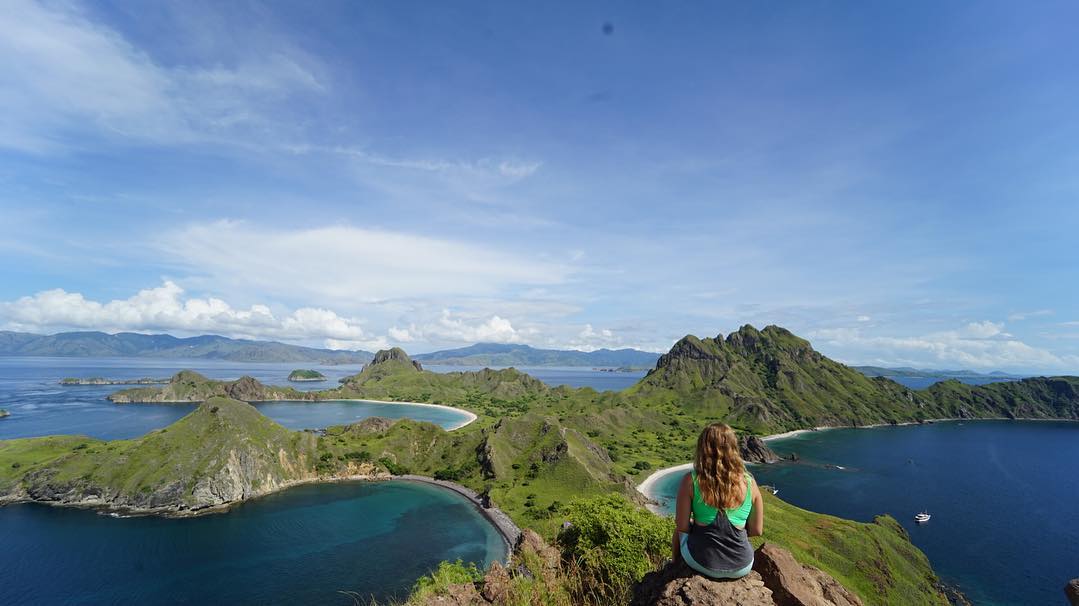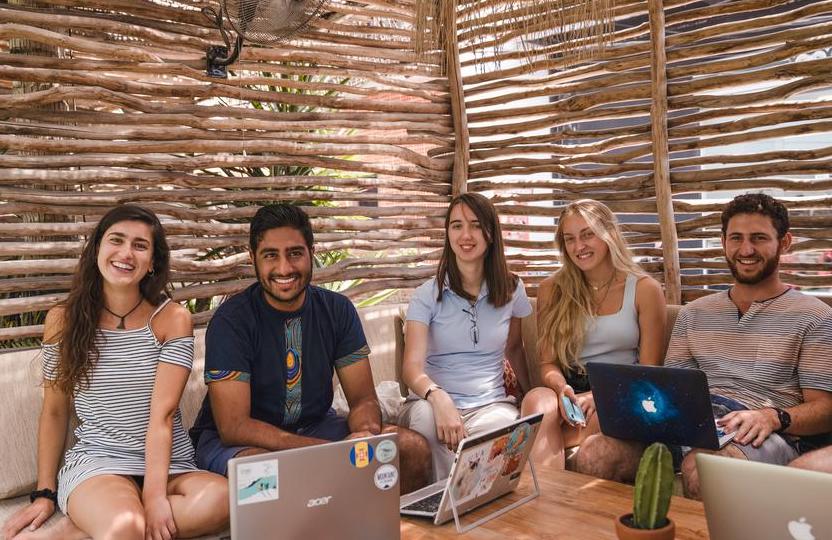Bali, known for its tropical vistas, world-class surfing, and unique culture, is more than just a tourist destination. It's a vibrant place to work, offering a unique mix of culture, religion, and history.
As a Hindu island in the largest Muslim country in the world, Indonesia, Bali stands out with its distinct character and charm.
For over seven years, Start Me Up has been helping people gain work experience in Bali. We’ve guided people into roles as marketers, business development specialists, software engineers, UX designers, writers, PR specialists, and more.
Our experience has shown that Bali offers opportunities across a multitude of sectors, including sustainable fashion, hospitality, blockchain, travel, fintech, healthcare, nonprofit, NGO, social enterprise, gaming, e-commerce, artificial intelligence, renewable energy, and conservation.
In Bali you are getting the chance to work in one of the world’s fastest growing economies. The IMF predicts Indonesia to be in the top two fastest growing top-20 economies in the world in 2023.

The latter is especially interesting when you consider that Bali sits in one of the most biodiverse countries in the world.
Indonesia boasts some of the world’s largest tracts of primary rainforest, brimming with over 15,000 plant species, orangutans, pygmy elephants, proboscis monkeys and clouded leopards.
Indonesia’s seas, which span both Indian and the Pacific oceans, play host to 18% of the world’s coral reef, sperm whales, whale sharks, spinner dolphins, hammerhead sharks, and manta rays and pilot whales.
Our favorite working spots
Sandy beaches and great transportation networks across the island, Sanur has lots going for it. We love working out of Livit.
Incredible culture, rice paddies, food and monkey watching. We also love working out of Outpost Ubud.
Hipster cafes, world-class waves and excellent facilities, we also love working from BWork.
So what else is great about working in Bali?
In Bali you are getting the chance to work in one of the world’s fastest growing economies. The IMF predicts Indonesia to be in the top two fastest growing top-20 economies in the world in 2023.
You are also getting the chance to work in the world’s third largest economy in the world: Indonesia has a population of around 270 million people and is also a young country. The average age of an Indonesian is less than 30 years old and it’s predicted to be the 4th largest economy in the world by 2045.
What kind of jobs and work is available in Bali?
There are thousands of businesses in Bali offering all kinds of different products and services. Some are venues, such as hotels, some offer physical products, for example, stores, and some are in software or services relating to consulting or education.
As such, there are hundreds of different potential roles available. But many of the paid positions are related to the tourism and hospitality industry in particular.
Importantly, if you are not Indonesian, you will need a special residency and work permit in order to live and work in Indonesia.
This is called a KITAS. Because securing these permits is relatively expensive (in the thousands of US dollars), these kinds of sponsorship opportunities tend to be reserved for people with a proven track record in tourism and hospitality.
What to speak
The national language, known as bahasa Indonesia, belongs to the same language group as the malay language and are about 60-70% mutually intelligible for daily conversation. Around 10,000 words can be traced to the Dutch owing to the European country’s colonial rule between 1816 and 1941.
What it’s like to work in Bali
We asked our colleagues and friends in Bali for advice on working in Bali and they shared some of their top tips with us.
Firstly, working in Bali is diverse. Expect to meet people from across the archipelago, as well as from every country on the planet.
Working in Bali is friendly and non confrontational. Indonesians tend to be polite in the workplace and so will tend to offer constructive feedback privately or discretely.
Bear in mind that you will be treated with politeness and respect so you should do the same. Patience is advised. People may not jump to answer your requests immediately and confrontations should be avoided at all costs.
You’ll get much further in Bali by staying calm and even-tempered; being aggressive in public is both rude and embarrassing. The Balinese are smiley; reciprocate.
Where to work
We have run our cohorts in Ubud, Canggu, and Sanur. All of which offer different pros and cons and all which have access to great workspaces such as Outpost, BWork, Tropical Nomad and Livit. Ubud and Canggu both can be hard to work in because of high levels of traffic. Bali is really not very big. But it takes a disproportionately long time to travel anywhere, owing to its road infrastructure, which was primarily constructed with two-wheeled motor scooters in mind.
Cultural considerations
The Balinese are renowned for being some of the kindest and warmest people on the planet. But please be sensitive to their culture while visiting. 90 percent of the Balinese are hindus and traditional ceremonies are a big part of life here in Bali.
You will often see ceremonies happening, especially in Ubud. Balinese Hindus have lots of superstitious beliefs and leave offerings for the gods every day. Shoes are removed at the entrances to the home, offices and coworking spaces.
Do not touch the head of a Balinese person, not even a child – it’s considered a sacred part of the body. In both Hindu and Muslim culture use of the left hand is frowned upon.
It’s also considered “unclean” so try to remember to use your right hand whenever you’re touching someone, giving or receiving something, or eating.
Fond of pointing? Using a forefinger to point at someone is considered rude – if you must gesture, use the open palm or thumb of your right hand.
Working in Bali is affected by both Indonesian and Balinese holidays
Hari Raya Galungan: Galungan is a Balinese holiday celebrating the victory of dharma over adharma. It marks the time when the ancestral spirits visit the Earth. The last day of the celebration is Kuningan, when they return. The date is calculated according to the 210-day Balinese calendar. Hari Raya Kuningan: The last day of the celebration is Kuningan, when they return. The date is calculated according to the 210-day Balinese calendar.
Getting around
There’s no doubt, the biggest danger you will face in Bali is from riding a scooter. In 2015, there were a total of 1,492 traffic accidents across Bali. In these accidents, 504 people died, 254 people suffered severe injuries and 1,890 people suffered minor injuries.
Want to read more about the incredible country of Indonesia? Check out Indonesia Etc: Exploring the Improbable Nation by epidemiologist, public health consultant, author and journalist, Elizabeth Pisani.
Top Bali Sectors
Real Estate

Tourism



